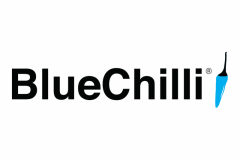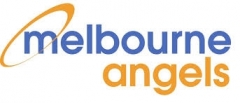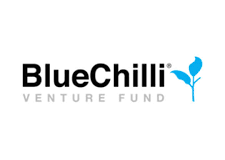About Us
The genesis of a good idea
Write.Studio (formerly ComWriter) was designed by Dr Linda Glassop. Linda had recently left an academic career teaching, amongst others, undergraduate and postgraduate management students. During her teaching career, Linda provided her students with many tips and tricks for writing. When she left academe, Linda started to design an iPad app to help her students with academic essay writing, but the design soon grew in stature as Linda brought together the essential ingredients necessary for professional report writing. Using her background in systems development work, together with her business and academic experience (as a supervisor and student herself), the design soon evolved into what we see today: the kernel of a broader writing platform that will change the way we write.
Our Vision: To make complex writing easy
Complex Writing is authoritative, scientific, legal, academic, technical, non-fiction, or other lengthy works. Generally, professional writing is aimed at informing and changing the world rather than making headlines. Complex writing tends to include works such as:
- books (fiction, non-fiction, edited volumes)
- business reports (e.g., strategies, land, and other corporate documents)
- research reports (e.g., marketing, investment, business)
- government reports (e.g., legislative interpretations, policy proposals, committee reports, fact sheets)
- consulting reports (e.g., innovation, change management, technology)
- user guides (e.g., policies, procedures, fact sheets)
- technical manuals (e.g., handbooks, standards)
- Our Mission: To treat complex writing as a project (not a task)
Complex Writing is not a simple task and often takes time to complete (research-write-publish), and may involve collaboration with colleagues, scholars, editors, or technical writers (locally or internationally). To this end we have implemented tracking processes to keep on top of the pipeline and workflow, including progress and status reporting.
Our Task: To deliver an online, collaborative writing environment
The legacy tools we have to ‘write’ are output-driven and do not support the needs of professional writers. Thus, we have implemented:
- collaboration to connect writers whether they be in the next office, working remotely, at a client site, or located locally, nationally, internationally
- task management with inline comments and a chat function
- workflow monitoring: progress reporting, status
- pipeline tracking: progress reporting
- automated formatting with a customizable style guide
Our Goal: To improve the quality of writing
We don’t believe in simply delivering a ‘product’. We are setting out to redefine the way we write. To achieve this we will, shortly, implement a readability score. Following this, we intend to develop other quality management analytics.
Goal: Make writing pleasurable
Writing is something that fundamentally sets humans apart from all other animals. We learn to draw and then turn our childhood etchings into words. Words communicate who we are, what we think, what we believe in, and how we’d like to see our world. Writing is truly remarkable: the words of poets, storytellers, policymakers, and agents of change shape the world we live in. The tools we use to write need to reflect this remarkable human activity and make it pleasurable.
Goal: Remove the noise
Writers require lots of things when they write: research, references, notes, images, collaboration, feedback, and so on. The need to jump around from tool to tool distracts a writer from their fundamental activity: writing something incredible. We seek to remove the ‘noise’ to enable writers to focus on crafting their story.
Goal: Story before style
The legacy writing tools we have are old-fashioned and belong to a bygone era. We spend more time formatting our documents to make sure they ‘look’ professional then carefully crafting our story. We understand that a professional looking document conveys a certain image and is important for written communication. However, we position style as subservient to story; making it an afterthought rather than a forethought. We do that by providing control over a custom style guide: set and forget formatting.
Goal: Eliminate referencing hurdles
Referencing other peoples work is a fundamental ethic of honoring those that have written before us. Over the years, the desire to adopt this ethic has become a technical nightmare; a compliance challenge. We aim to restore the role of referencing to the art of finding relevant material that enhances our story-telling and make it simple to honor the ethics of acknowledging those that have informed us: our sources.
Goal: A writing community
Not all of us know how to craft our story. And those that do have developed their own methods, tips, and tricks to make writing efficient and easier. Underpinning the education agenda is the desire to develop lifelong learners, to acknowledge our thirst for understanding and helping others learn. A writing community is essential to supporting the writing endeavor and enhancing every individual’s desire to be an awesome writer. Our forum will enable an online community of writers to share their expertise, tips, and tricks.
Goal: Accessible research
Knowledge increases our innovative potential and drives evolution. Education was founded by Philosophers who freely dispersed their wisdom to others. Currently, there are prohibitive costs associated with accessing published research that restricts fair and reasonable access to those that can’t afford to pay. These costs are driving the education budget ever higher, leading to increased education fees that foster class discrimination. We will drive a new business model that radically reduces the cost to publish quality research thereby enabling the education dollar to be more wisely spent.
Our Values
We value academic techniques guiding content construction (quality)
The standards of academic writing encourage writers to prepare their work in a specific way. We aim to make it easier to incorporate such standards that guarantee your work is of high quality.
We value professional formatting (consistent)
All written work is a communication and must, therefore, be ‘well’ written if the author is to be taken seriously. Inconsistent writing becomes a distraction to a reader and might, therefore, discredit the author.
We value grammatically correct prose (readable)
Every language has its unique words and syntax. It is important for writers to check that their work is grammatically correct before publishing or submitting it for examination. Carefully written prose is understandable.
We value original content (credible)
In a world full of information, it seems easy to cut-and-paste content and believe that you have presented something interesting. Plagiarism is ‘stealing’ content from another writer. We do not support plagiarism or contract writing. We support original writers preparing original work with properly cited sources. This is the genesis of credible work.
We value collaboration (productive)
We know that two heads are better than one. This idea is not unknown to report writing. Teaming up with others to complete your work is a sensible approach and often injects different viewpoints and creativity. However, it should not be at the cost of being productive. We aim to remove the difficulties of working collaboratively.
We understand that good writing takes time (efficient)
Writing a solid, authoritative work does not happen overnight (even though many students wish it did)! Tracking writing progress, whether you write alone or in a team, requires ‘project management’ tools. There are no such tools sitting within current writing applications; thereby causing writers to be unproductive and distracted. We aim to rectify that situation.
Updated: 23 February, 2022












